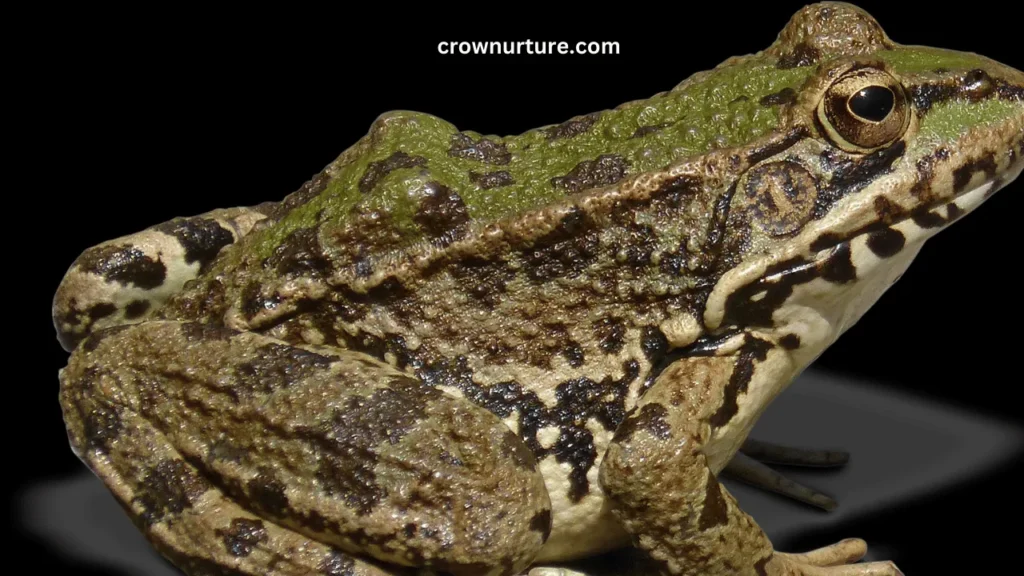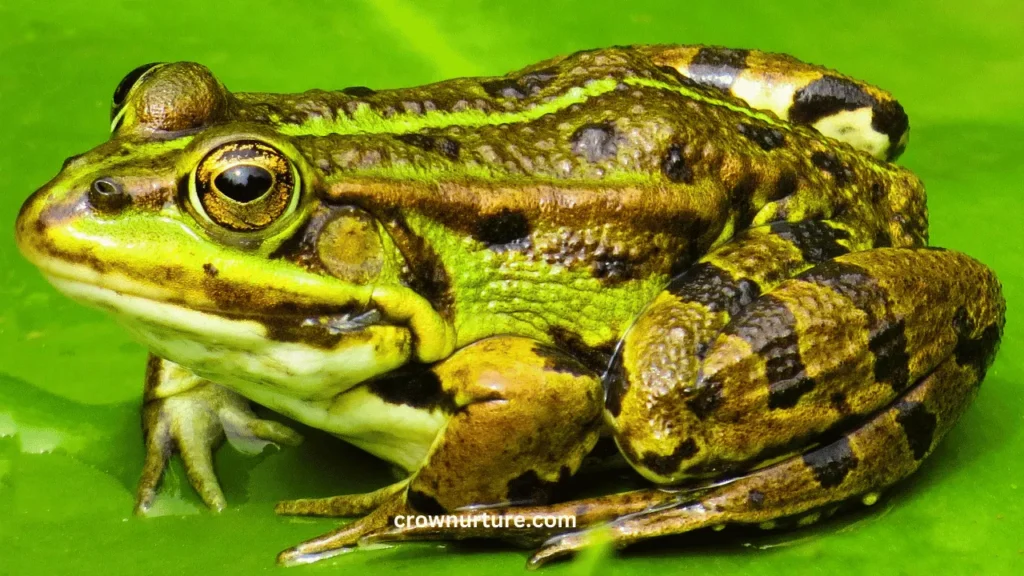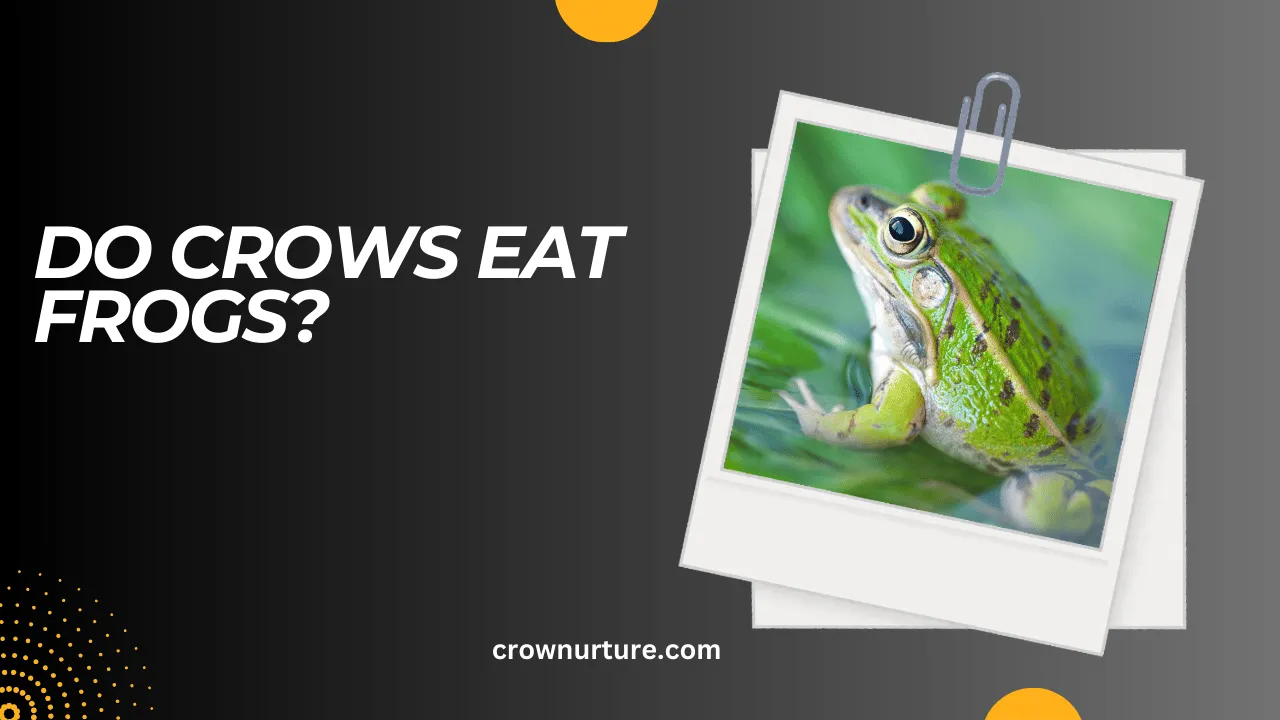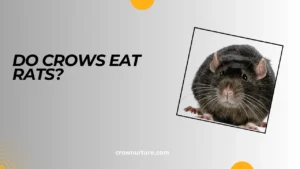Crows are widely regarded as one of the most intelligent and adaptable bird species on the planet. Known for their ability to thrive in almost any environment, these opportunistic feeders eat a wide range of food, from fruits and seeds to small animals.
But how far does their dietary flexibility extend? Could crows, in their quest for food, also target frogs as part of their diet? This intriguing question offers insight into the complex feeding behaviors of crows and the role they play in the ecosystem.
This article will explore the dietary habits of crows, focusing specifically on whether they consume frogs and why this behavior might occur. By examining the factors that influence crows’ feeding choices, the nutritional value of frogs as prey, and the broader impact on frog populations, we can better understand the dynamics between these two species.
Understanding the interaction between crows and frogs is not only a fascinating look at predator-prey relationships but also important for understanding broader ecological impacts. Through this article, we will examine these connections and delve into the often-overlooked role of crows in regulating animal populations.

Contents
- 1 1. The Crow’s Diet: A Versatile Feeder
- 2 2. Crows and Frogs: A Delicate Balance
- 3 3. The Impact of Crow Predation on Frog Populations
- 4 4. Myth or Reality: Common Misconceptions
- 5 Conclusion
- 6 FAQs
- 6.1 1. Do all crow species eat frogs?
- 6.2 2. How do frogs defend themselves against crow predation?
- 6.3 3. Can crow predation lead to significant declines in frog populations?
- 6.4 4. Are there any benefits to crow predation on frog populations?
- 6.5 5. What can be done to protect frog populations from crow predation?
- 6.6 6. How do crows find frogs to eat?
1. The Crow’s Diet: A Versatile Feeder
Crows are known for their omnivorous nature, meaning they consume both plant and animal matter. Their diet includes a broad spectrum of food, such as seeds, fruits, insects, and small vertebrates. This ability to consume almost anything available makes crows adaptable to a variety of environments.
The dietary preferences of crows are influenced by availability, nutritional value, and ease of access. Crows will often prioritize food that provides the most energy for the least effort, which is why they tend to scavenge. However, when conditions allow, they will actively hunt and catch small prey, such as frogs.
As opportunistic feeders, crows will take advantage of any food source they come across, including frogs if they are in the right place at the right time. This flexibility is part of what makes crows so successful across a wide range of habitats.
2. Crows and Frogs: A Delicate Balance
Frogs, as a source of protein, can be an attractive meal for crows. They are particularly nutrient-dense and provide a valuable food source during breeding seasons when crows may need extra energy. However, not all frogs are equally vulnerable to crow predation.
Habitat overlap plays a significant role in crow predation of frogs. Crows are more likely to target frogs in areas where the two species share overlapping environments, such as near wetlands, ponds, and riverbanks. The size of the frog also influences predation—larger frogs are harder for crows to catch, but smaller frogs are more accessible.
Frogs have developed various behavioral adaptations to avoid predation. Some species rely on camouflage, blending into their surroundings to avoid detection. Others may use rapid escape techniques, jumping away quickly to avoid being caught by a hungry crow.

3. The Impact of Crow Predation on Frog Populations
The predation of frogs by crows can influence population dynamics, particularly in areas with high crow densities. In such environments, frogs may experience significant predation pressure, especially during their vulnerable life stages, like tadpoles or juvenile frogs.
Habitat loss and fragmentation can amplify the impact of crow predation. As natural habitats disappear, frogs may be forced into smaller, more isolated areas where they are more susceptible to predation by crows. This can lead to declines in local frog populations, affecting biodiversity and ecosystem stability.
While crow predation can have a noticeable impact on frog populations, it’s important to consider that it is just one of many factors that affect frog survival. Other threats like pollution, climate change, and habitat destruction also play significant roles in the decline of frog populations.
4. Myth or Reality: Common Misconceptions
There are many misconceptions about crows and their diet. Some people believe that crows are primarily scavengers, only eating leftovers, but the truth is that they are highly skilled at hunting small prey, including frogs.
Additionally, some believe that crows can wipe out frog populations. While predation can affect frog numbers, it is unlikely to lead to significant declines unless there are already existing vulnerabilities, such as habitat destruction or extreme weather events. Crows, in fact, play an important role in ecosystems as scavengers and seed dispersers.
It’s crucial to remember that crows are part of a much larger ecological balance. Their role in regulating populations of small animals, including frogs, is just one piece of a complex puzzle that helps maintain the health of ecosystems.
Conclusion
Crows are highly adaptable birds that will take advantage of a wide variety of food sources, including frogs. Their role as opportunistic feeders makes them both important contributors to the ecosystem and potential predators to small prey species.
While their predation on frogs can influence frog populations in some regions, this interaction is just one element of the broader ecological balance. By understanding the complex feeding behavior of crows and their impact on frog populations, we can gain a deeper appreciation for the delicate relationships that exist in nature.
As we move forward with conservation efforts, it’s essential to consider the interplay between these species and their habitats to ensure the survival of both.
FAQs
1. Do all crow species eat frogs?
Most crow species are opportunistic feeders, so they may eat frogs if they are available, though it depends on the environment and species.
2. How do frogs defend themselves against crow predation?
Frogs use camouflage, rapid escape, and warning calls to avoid being caught by crows.
3. Can crow predation lead to significant declines in frog populations?
In areas with high crow densities and habitat loss, crow predation can contribute to declines in frog populations, but other factors are usually more significant.
4. Are there any benefits to crow predation on frog populations?
While crow predation can reduce frog numbers, it helps regulate populations, preventing overpopulation and imbalances in the ecosystem.
5. What can be done to protect frog populations from crow predation?
Habitat restoration and protection are key strategies to minimize crow predation and ensure healthy frog populations.
6. How do crows find frogs to eat?
Crows often hunt for frogs in areas like wetlands, riverbanks, and ponds, where frogs are abundant.








